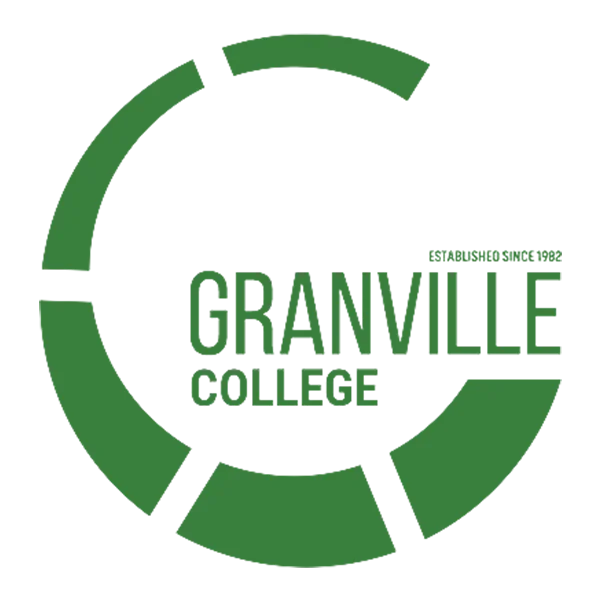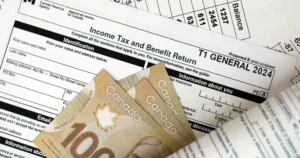You’ve checked into a hotel on a Tuesday night and paid $120 for your room. Your colleague books the same room type for Friday and pays $250. Same hotel. Same room. Different price. Frustrating? Maybe. But there’s a sophisticated strategy behind it—and it’s called revenue management.
In the competitive world of hospitality, success isn’t just about filling rooms or tables—it’s about maximizing profitability while delivering exceptional guest experiences. Revenue management is the art and science of selling the right product to the right customer at the right time for the right price. Whether you’re managing a boutique hotel, a bustling restaurant, or a full-service resort, mastering revenue management can transform your bottom line.
With Canada’s accommodation and food services sector contributing over $50 billion annually to the national GDP (Statistics Canada, 2024), the stakes have never been higher. Here are the top strategies every hospitality professional should know.
Dynamic Pricing
Gone are the days of fixed pricing. Dynamic pricing adjusts rates in real-time based on demand, seasonality, competitor pricing, and booking patterns. Hotels use this to charge more during peak seasons or events and offer competitive rates during slower periods.
In major Canadian cities like Toronto and Vancouver, hotel rates can fluctuate by 30-50% depending on the day of the week and local events (STR Global & Hotel Association of Canada, 2024). This pricing strategy has become essential for staying competitive in Canada’s diverse tourism market.
Pro Tip: Use revenue management software to automate pricing decisions and stay agile in a fast-moving market.
Forecast Demand Accurately
Understanding future demand is the foundation of effective revenue management. Analyze historical data, market trends, local events, and booking pace to predict occupancy and revenue. This allows you to make informed decisions about pricing, staffing, and inventory.
Tourism in British Columbia alone generates over $20 billion in revenue annually (Destination British Columbia, 2024), with significant seasonal variations. Accurate forecasting helps hoteliers anticipate high-demand periods like summer tourism season, ski season in Whistler, or major events like the Vancouver International Film Festival.
Key Insight: Accurate forecasting helps you avoid overbooking or underutilizing your assets.
Optimize Distribution Channels
Not all booking channels are created equal. Direct bookings through your website typically yield higher margins than third-party OTAs (Online Travel Agencies) due to lower commission fees. Balance your channel mix to maximize visibility while protecting profitability.
According to the Hotel Association of Canada (2024), OTA commission rates typically range from 15-25%, significantly impacting hotel profit margins. Strategic channel management can increase net revenue by redirecting bookings to lower-cost channels.
Strategy in Action: Offer exclusive perks or discounts for direct bookings to incentivize guests to book through your site.
Leverage Upselling and Cross-Selling
Revenue management isn’t just about room rates—it’s about total guest spend. Train your front desk and service teams to upsell room upgrades, spa packages, dining experiences, or event add-ons. Every touchpoint is an opportunity to enhance the guest experience and increase revenue.
Canadian hotels that implement effective upselling strategies see an average increase of 10-15% in revenue per available room (Canadian Hotel Investment Conference, 2024).
Example: A guest checking in for a weekend getaway might be interested in a couples’ massage package or a late checkout for a small fee.
Implement Length-of-Stay Controls
Control minimum and maximum stay requirements to optimize occupancy and revenue. During high-demand periods, enforce minimum night stays to avoid gaps. During low-demand times, remove restrictions to encourage bookings.
This strategy is particularly effective during peak Canadian tourism periods. Summer months (June-August) account for approximately 40% of annual tourism revenue in popular destinations like Banff and the Okanagan Valley (Destination Canada, 2024).
Why It Works: This strategy ensures you’re not leaving money on the table during peak times or turning away revenue during quieter periods.
Segment Your Market
Not all guests have the same needs or budgets. Segment your audience—corporate travelers, leisure tourists, families, wedding groups—and tailor pricing, packages, and promotions accordingly. Personalized offers resonate more and drive conversions.
In 2024, international visitors to Canada spent an average of $1,800 per trip, while domestic travelers spent approximately $500 per trip (Statistics Canada, 2024), highlighting the importance of differentiated pricing strategies for distinct market segments.
Actionable Tip: Create targeted email campaigns or landing pages for each segment.
Monitor Competitors and Market Trends
Revenue management is a moving target. Regularly benchmark your rates and performance against competitors. Stay informed about local events, economic shifts, and industry trends that could impact demand.
The Canadian hotel industry experienced significant rate volatility in recent years, with average daily rates in major markets fluctuating based on economic conditions and travel patterns (CBRE Hotels, 2024).
Tool Recommendation: Use competitive intelligence tools or simply keep a pulse on local market activity.
Focus on Guest Experience and Loyalty
Revenue management isn’t just about squeezing every dollar—it’s about long-term value. Happy guests return, leave positive reviews, and refer others. Invest in guest satisfaction, loyalty programs, and personalized service to build a sustainable revenue stream.
Research shows that increasing customer retention rates by just 5% can increase profits by 25-95% in the hospitality sector (Harvard Business Review, 2023).
Remember: A loyal guest is more valuable than a one-time visitor.
Real-World Application
Imagine managing a mid-sized hotel in Vancouver during the busy summer tourism season. By implementing dynamic pricing, you increase weekend rates by 20% while offering weekday discounts to attract business travelers. You partner with local attractions to create bundled packages, driving cross-sell revenue. Meanwhile, your team upsells guests to premium rooms with city views, boosting your average daily rate (ADR) by 15%. The result? Higher occupancy, increased revenue per available room (RevPAR), and happier guests who feel they’re getting great value.
Frequently Asked Questions
-
What is revenue management and why does it matter in hospitality?
Revenue management is the practice of using data and strategy to sell your services at the optimal price to maximize revenue. In hospitality, it matters because it directly impacts profitability—helping hotels, restaurants, and resorts make smarter pricing decisions, improve occupancy rates, and increase guest lifetime value.
With Canada’s tourism sector employing over 750,000 people and contributing significantly to the national economy (Statistics Canada, 2024), effective revenue management is essential for business sustainability and growth. It’s the difference between simply filling rooms and running a financially healthy business.
-
Do I need special training to work in revenue management?
While some revenue managers learn on the job, formal training gives you a competitive edge. Understanding demand forecasting, pricing psychology, distribution strategies, and hospitality software is essential.
The Canadian Tourism Human Resource Council (2024) reports that hospitality professionals with specialized training in revenue management earn 20-30% more than those without formal education. Programs like Granville College’s Hospitality Management with Co-Op provide hands-on experience in these areas, preparing you to step into revenue-focused roles with confidence.
-
Does Granville College teach revenue management in its Hospitality program?
Absolutely! At Granville College, our Hospitality Management with Co-Op program equips you with the real-world skills to excel in revenue management and beyond. Through AHLEI-certified training and a hands-on 3-month co-op placement, you’ll learn to:
Analyze market data and forecast demand
Implement pricing strategies that drive profitability
Master front desk operations, guest services, and upselling techniques
Navigate distribution channels and online booking platformsWhether you’re aspiring to lead a hotel, manage a restaurant, or launch your own hospitality venture, Granville College empowers you with the tools, mentorship, and industry connections to thrive in British Columbia’s $20+ billion tourism industry (Destination British Columbia, 2024).
References
Canadian Hotel Investment Conference. (2024). Revenue optimization strategies for Canadian hotels. https://www.chic.ca
CBRE Hotels. (2024). Canadian hotel market outlook and rate trends. https://www.cbre.ca
Canadian Tourism Human Resource Council. (2024). Labour market information and wage trends in hospitality. https://www.tourismhr.ca
Destination British Columbia. (2024). BC tourism industry economic impact analysis. https://www.destinationbc.ca
Destination British Columbia. (2024). Tourism industry performance and economic impact report. https://www.destinationbc.ca
Destination Canada. (2024). Seasonal tourism patterns and revenue distribution across Canadian regions. https://www.destinationcanada.com
Harvard Business Review. (2023). The value of customer retention in hospitality and service industries. https://hbr.org
Hotel Association of Canada. (2024). Understanding distribution channels and commission structures in Canadian hospitality. https://www.hotelassociation.ca
Statistics Canada. (2024). Gross domestic product by industry: Accommodation and food services. Government of Canada. https://www.statcan.gc.ca
Statistics Canada. (2024). Travel survey of residents of Canada: Spending patterns by visitor type. Government of Canada. https://www.statcan.gc.ca
STR Global & Hotel Association of Canada. (2024). Canadian hotel market performance and pricing trends. https://www.hotelassociation.ca





